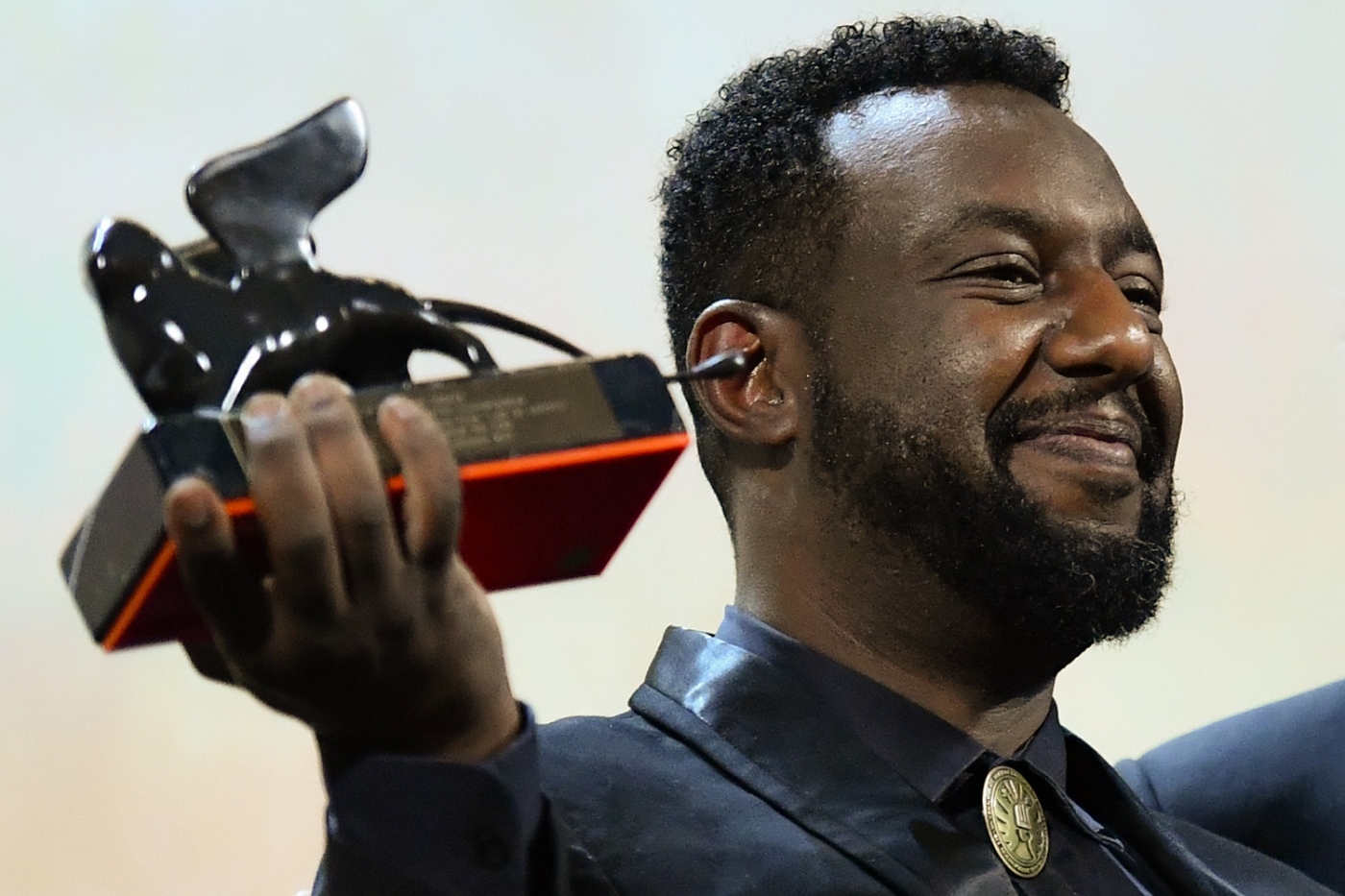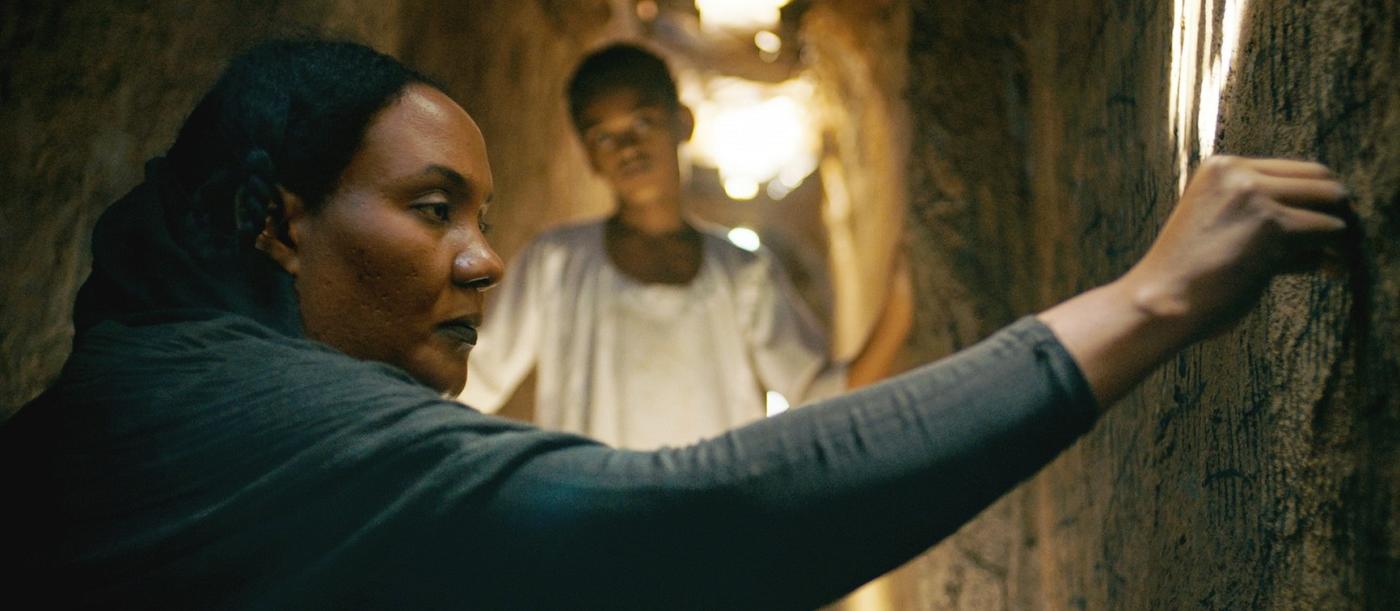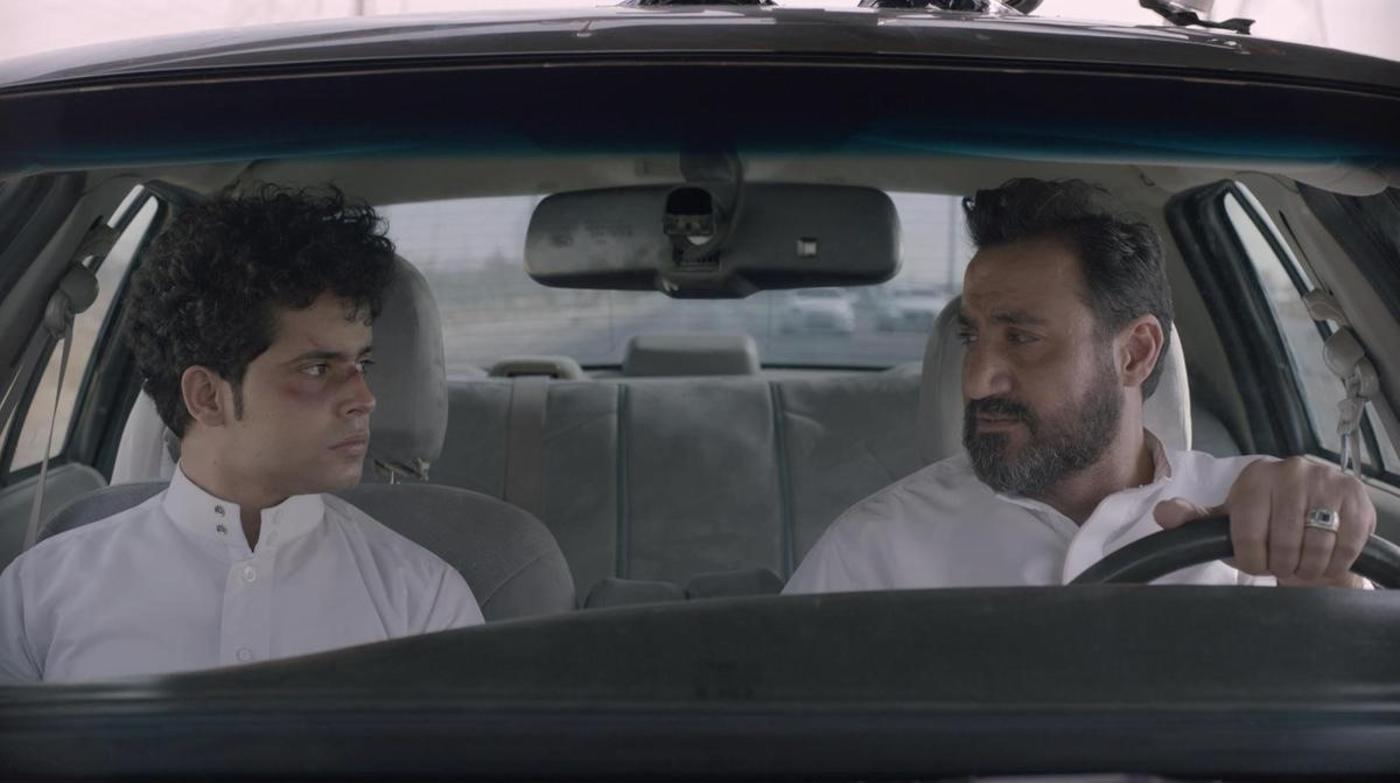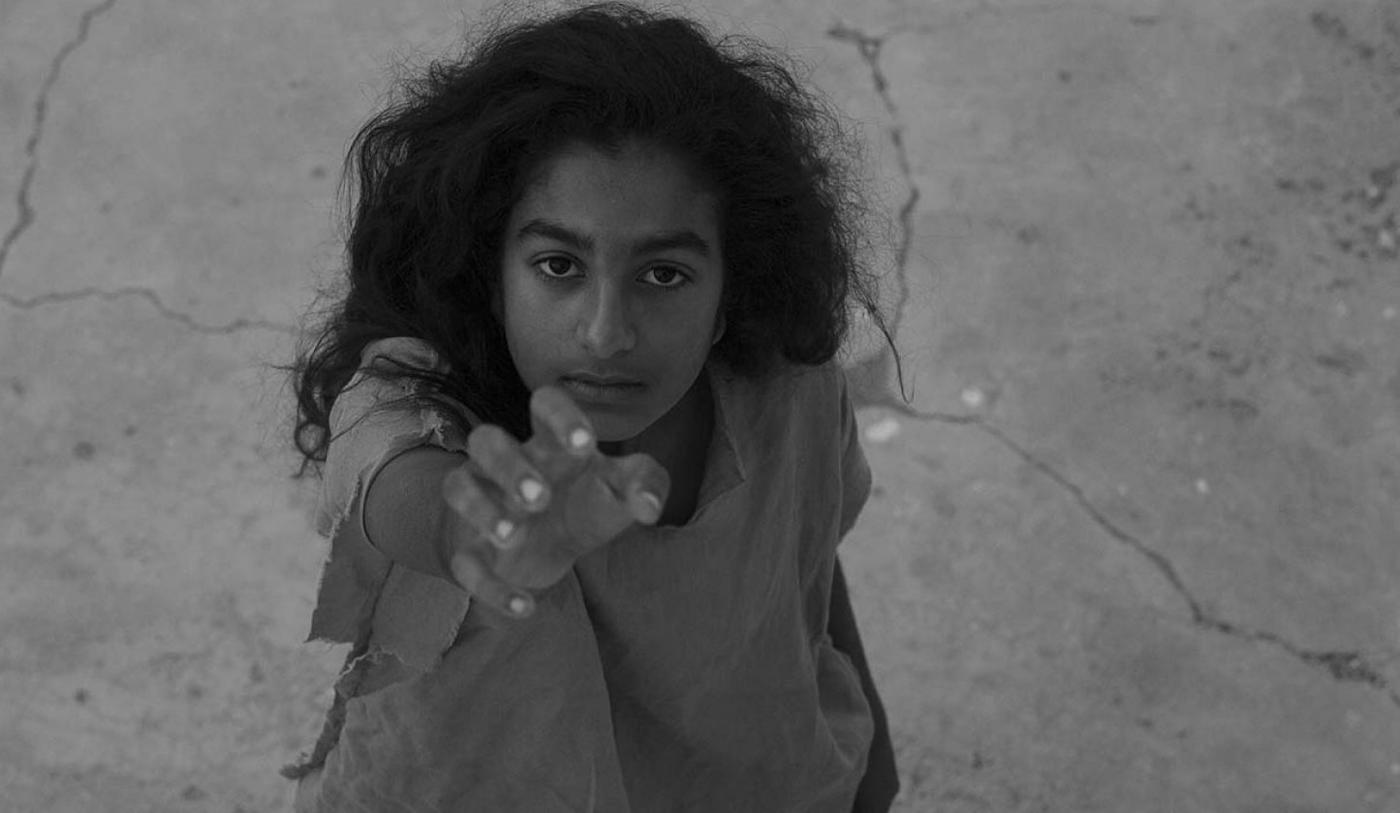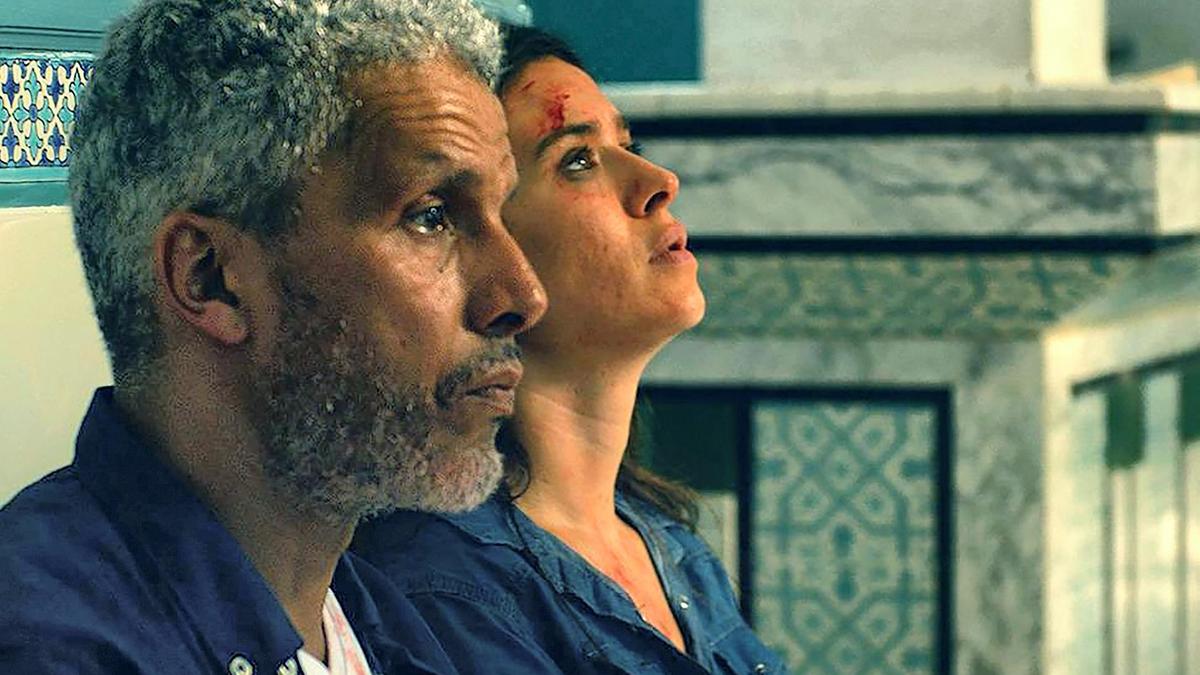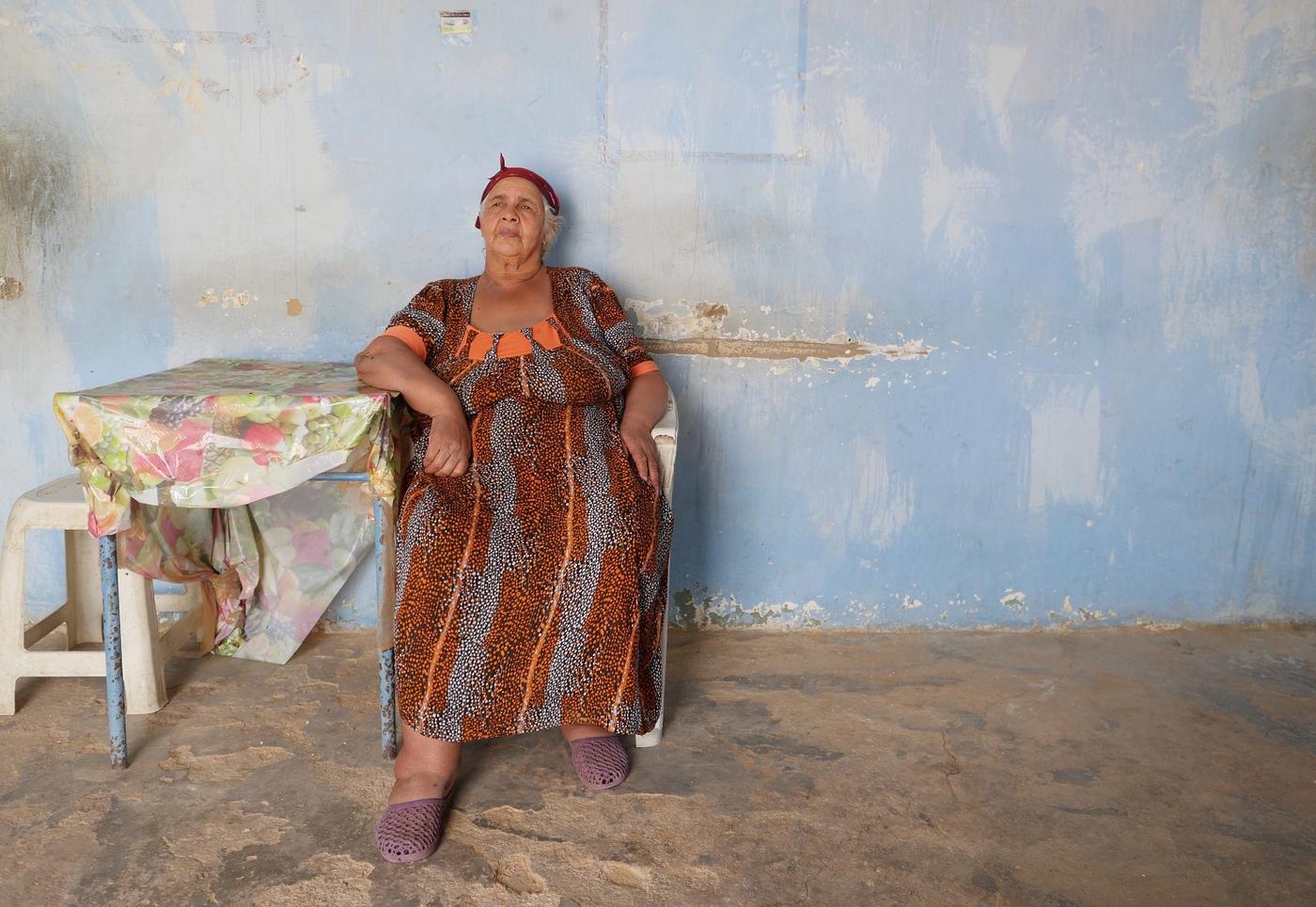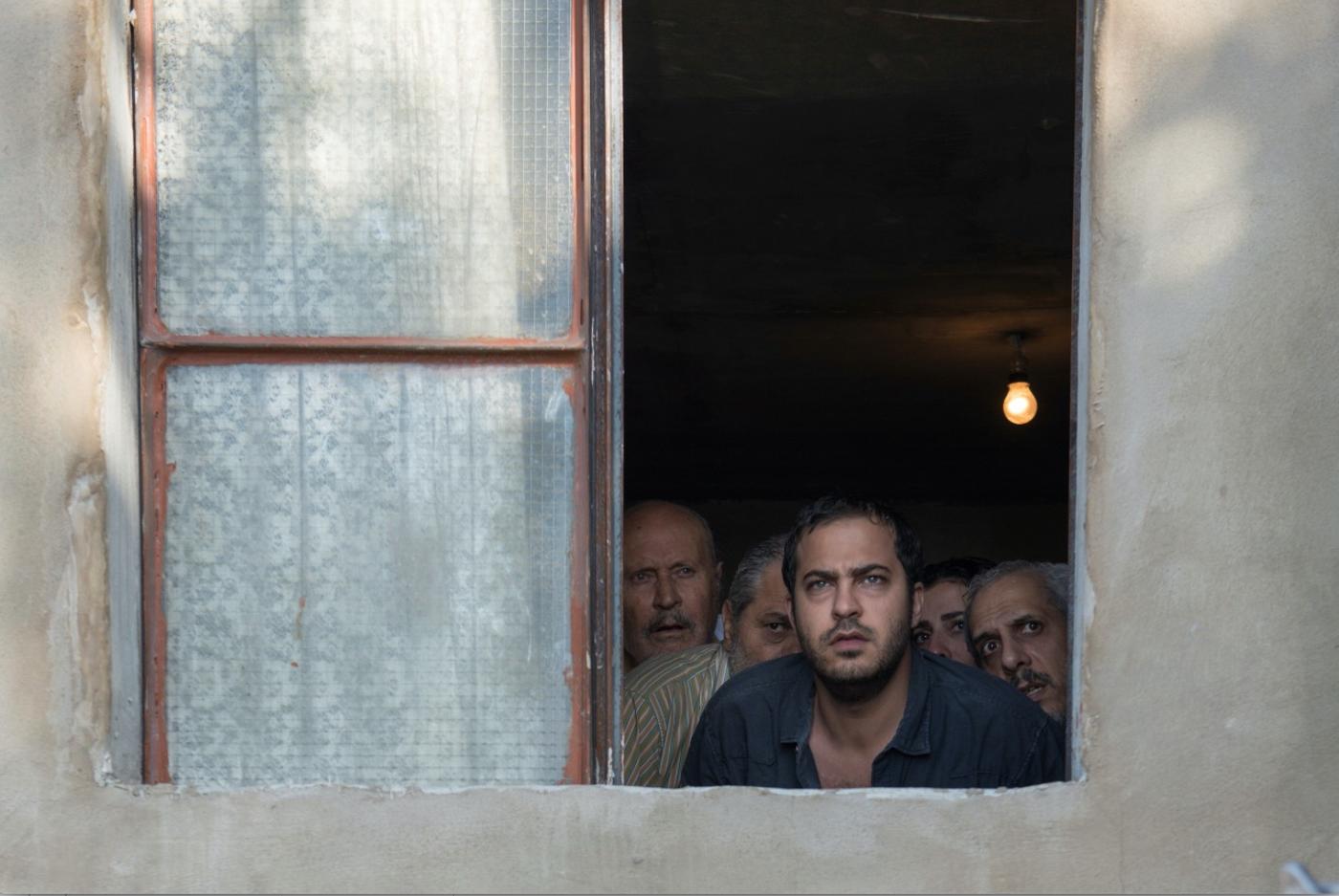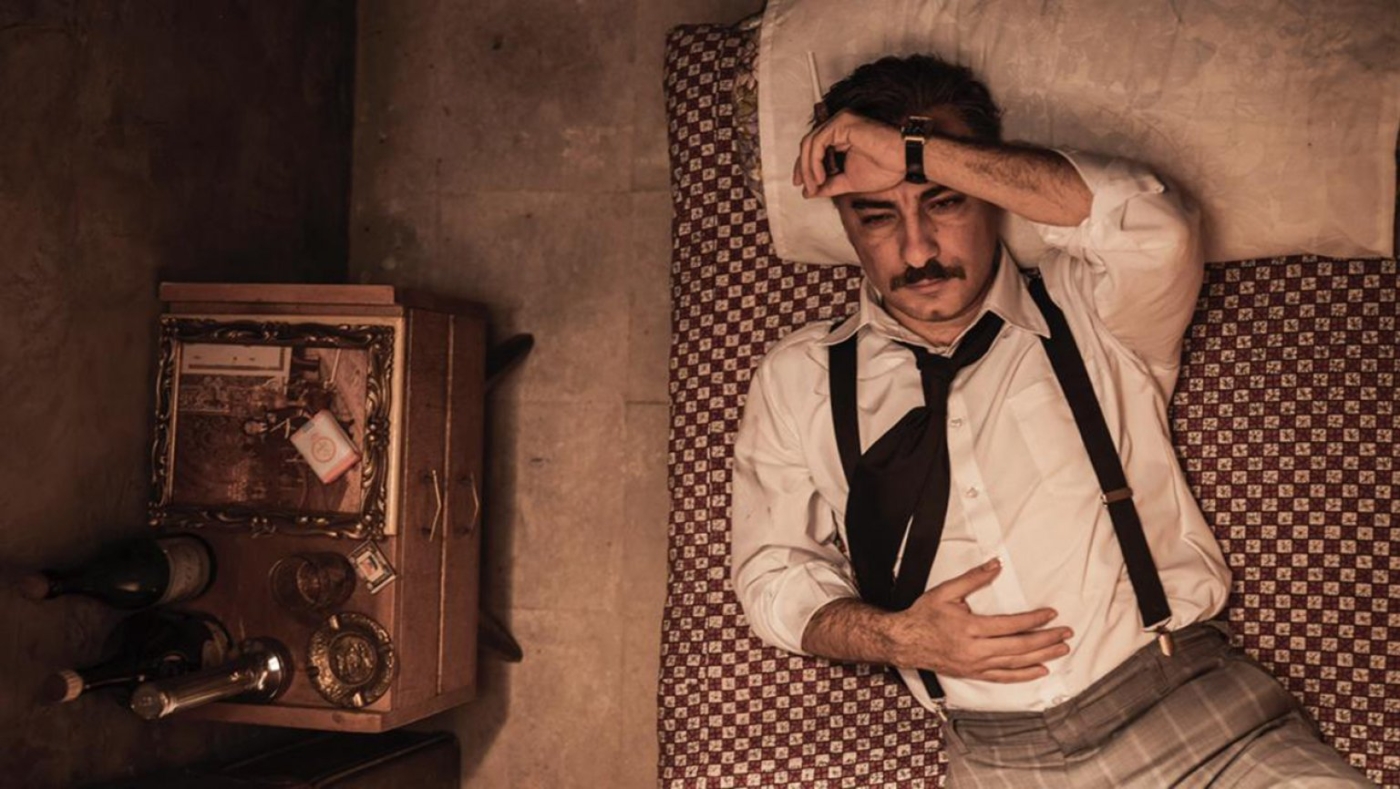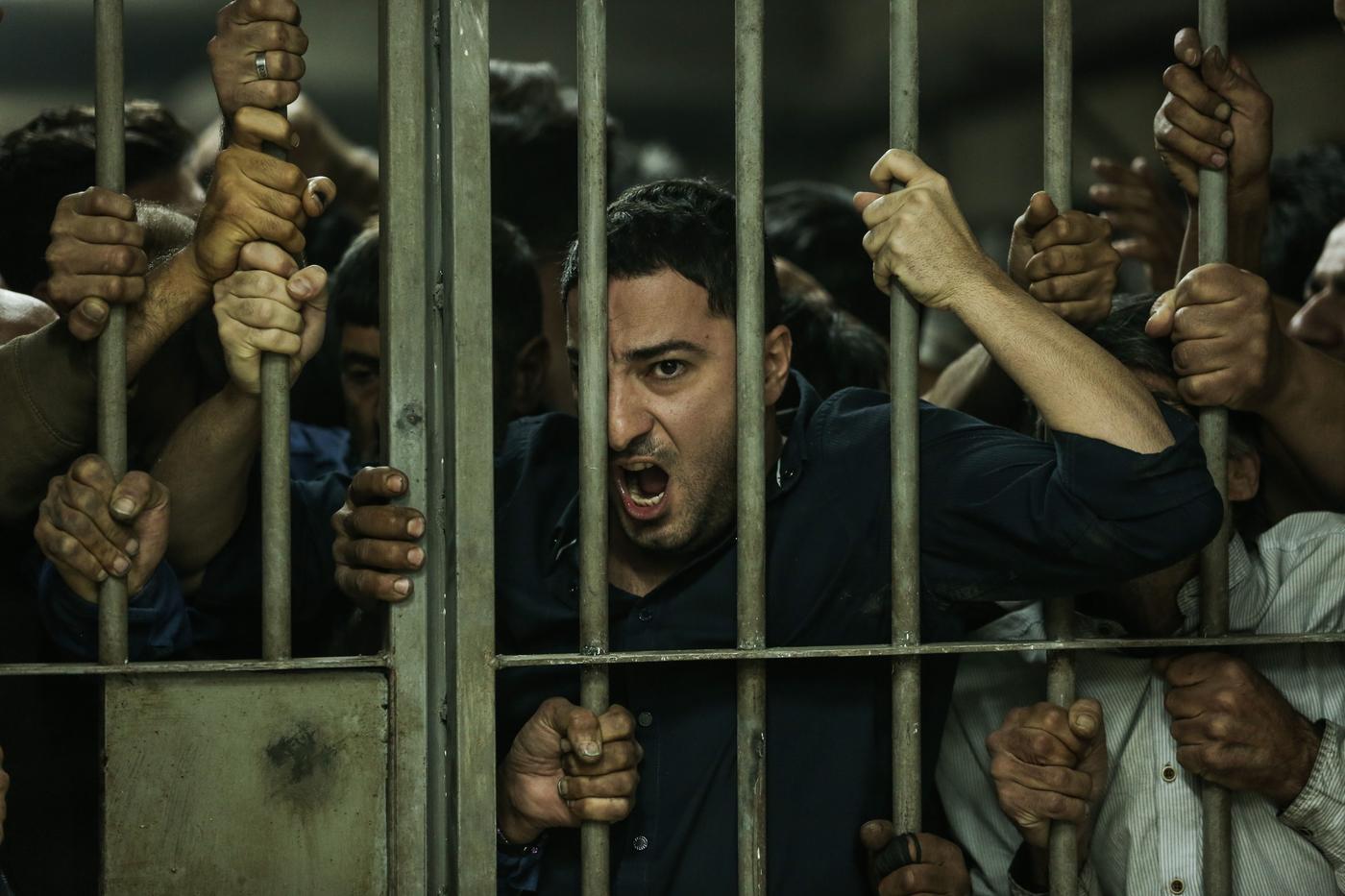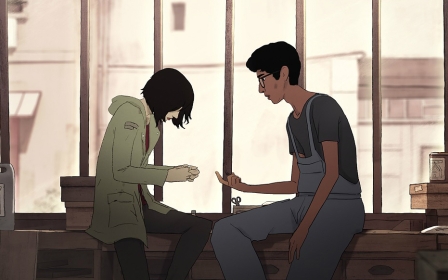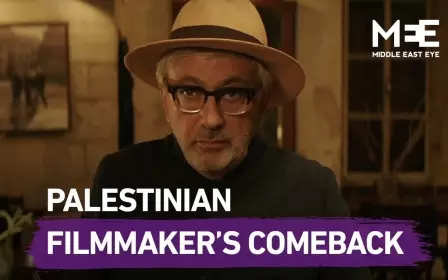Middle East film: The hottest features right now are from Saudi Arabia and Sudan
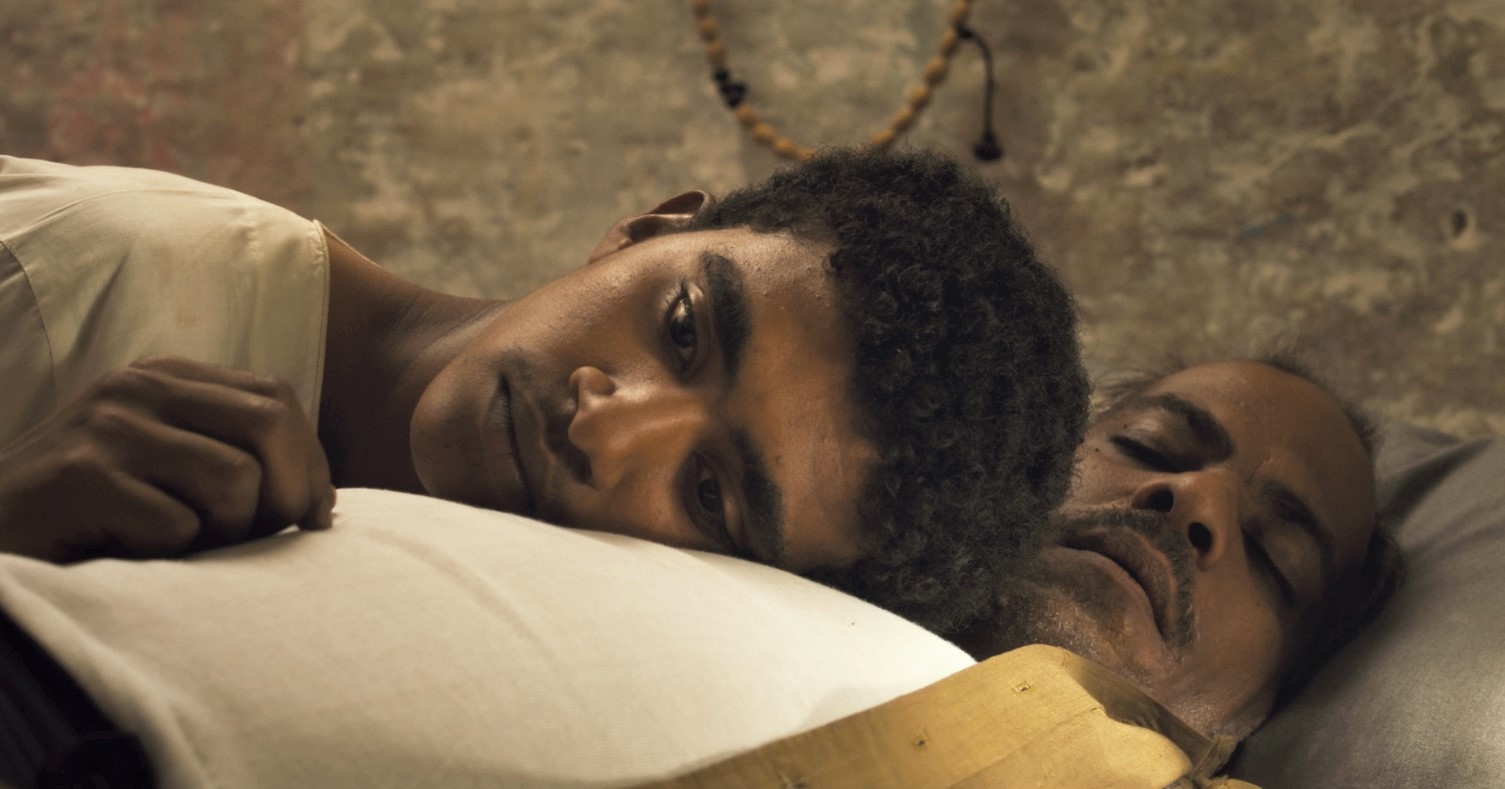
Europe is the strongest global market for Middle Eastern and North African arthouse features. And there is no better launchpad for any director who wants their film to be seen widely than the continent’s festival circuit, with its opportunities for publicity, sales and distribution, and access to networking.
No wonder then that MENA movies vie for slots at European film events, with those at Cannes and Venice the most coveted.
Cannes is still the grand cathedral for film festivals, less for the calibre of the work it screens, more for its robust market, which is still the biggest in the world.
Venice generates more buzz and often upstages its French rival: the features shown on the Lido in September bristled with intriguing premises, stylistic flourishes, ambition and guts. They included The Perfect Candidate, from Saudi film-maker Haifaa al-Mansour, whose debut Wadjda (2012) is one of the highest grossing Arabic movies internationally; Amjad Abu Alala’s You’ll Die At Twenty, the first Sudanese film to debut at the world’s oldest festival; and Ahmad Ghossein’s All This Victory, the most high-profile Lebanese picture of the year.
But few films in Venice fully realised their potential. Nor did they match the sheer audacity and inventiveness of the brilliant North African films that premiered outside Cannes’ official selection in May, including Tlamess, The Unknown Saint and Abou Leila. That said, the films at Venice were an improvement on the selection at Berlin in February, where few - save for Suhaib Gasmelbari’s Talking About Trees - managed to survive beyond the festival.
More formally daring and more intellectually stimulating were two films that premiered at Karlovy Vary (where this writer is the Arab delegate) in July and Locarno in August: Hassen Ferhani’s documentary, 143 Sahara Street, from Algeria; and Abdulmohsen Aldhabaan’s feature debut, Last Visit, from Saudi Arabia.
Both were more challenging than the more immediate, but less gratifying, films at Venice. They also proved that the biggest achievement Middle Eastern cinema has made this year is with small experimental films which push aesthetic and thematic boundaries.
A number of deductions can be drawn from these festivals about the state of Middle Eastern and North African films at the moment.
1. Sudan is a growing force
In February, Suhaib Gasmelbari made history by earning Sudan its first major film festival win with the best documentary award at Berlin for the perceptive, crowd-pleasing Talking About Trees.
Then in September his compatriot Amjad Abu Alala won Venice’s Luigi De Laurentiis prize for his debut feature You’ll Die At Twenty (it then took best film at Egypt’s El Gouna Film Festival the same month).
Abu Alala’s debut was the third Sudanese feature released this year (the other was Marwa Zein’s Berlinale contender Khartoum Offside). It was an unprecedented accomplishment for a country with no cinematic infrastructure, no local funds and very few cinemas.
All three relied on co-productions and foreign technical personnel, all three explore the nation in ways that defy dehumanising news portrayals, and all three took years to get made.
Of the trio, Talking About Trees is the most unassuming, most piercing and most accomplished. But it’s You’ll Die At Twenty which seems to be garnering the spotlight.
Based on Sleeping at The Foot Of The Mountain, a short story by Sudanese writer Hammour Ziada, it centres on a young man Muzamil who grows up believing he’ll die at 20 according to a prophecy made by a sheikh shortly after his birth.
Over-protected by his mother and constantly bullied, Muzamil nevertheless excels at memorising the Quran and attempting to live a devout life ahead of his early demise. Then Muzamil starts to question his existence after meeting Sulaiman (Mahmoud Elsaraj), a world-weary middle-aged man returning to Sudan from years abroad and struggling to adapt to society's restrictive culture.
Visually, Twenty is a marvel. Abu Alala and his French cinematographer Sebastien Goepfert capture rural Sudan with a mix of dreaminess and ruggedness, vividly evoking the dual desert/rural nature of a place rarely seen in cinema.
You’ll Die At Twenty could inspire generations of Sudanese film-makers to come
The main themes - including taking one’s destiny into one’s own hands, and the blurry line between sin and virtue - are daring for the conservativism of Sudanese society. For everyone else, however, Abu Alala’s ideas are quite elementary, explored at a surface-level and never wielded into something complex or thought-provoking.
The film is hampered by messiness and grave flaws which become only too apparent on watching it for a second time: they include the awkwardly portentous pieta tableau of Muzamil and his mother; the intrusive sexual advances of the sheikh, whose sole function is of momentary provocation; and the undeveloped roles of the love interest, Naima (Bunna Khalid), and Muzamil's father (Talal Afifi).
The look of Twenty reflects the overriding mood, as fantasy and reality coalesce in a manner which, while not jarring, is also far from seamless.
Nevertheless, there is enough talent and skill at work here to forgive its shortcomings, making it a film that could inspire generations of Sudanese film-makers to come.
2. The Saudis are coming
Long before the social reforms for which Crown Prince Mohammed Bin Salman has taken credit, Saudi cinema has been steadily developing. During the past decade, several film-makers have been sent abroad to study, while others utilised their then-limited resources to hone their craft and develop their cinematic identity.
Three Saudi features - Perfect Candidate, Last Visit and Scales - stormed the festival circuit during the second half of 2019, marking the biggest year to date for the kingdom's industry.
Last Visit is a slow-burning family drama about a father (Osama Alqess) and a son (Abdullah Alfahad) paying a sudden visit to a dying grandfather, a two-hander that swiftly evolves into a very subtle and piercing study of inherited toxic masculinity, generational disconnection and unamended trauma.
The result is a subdued portrait of a broken Saudi patriarchy on life support. Measuredly-paced and intentionally undramatic, it makes for a deeply perceptive and refreshingly unshowy debut from a film-maker uninterested in popular aesthetics.
Scales, Shahad Ameen’s debut feature - which premiered at Venice’s Critics’ Week, winning the Verona Film Club Award - is the most ambitious of the trio, if also the most difficult and most political. Ambitious and strikingly photographed, it is based on the director’s 2013 award-winning short, Eye & Mermaid.
The film opens in a dystopian fishing village, where the inhabitants must sacrifice one of their daughters to sea creatures which, in turn, provide the residents with food. But this long tradition is broken when one family refuses to hand over their daughter, leaving Hayat (Baseema Hajjar) to live as an outcast. She grows into a teenager and quickly finds herself forced to prove her worth to the men of the village, while gradually beginning to transform into a mermaid.
Art-house genre films are the exception in Arab cinema, which renders Scales, by default, as one of the most original movies of the year from the region.
The near-expressionist production design and otherworldly monochromatic cinematography augment the mysterious mood of what is essentially a coming-of-age fable about female empowerment and beating the odds.
Like You’ll Die At Twenty, the film’s look is far more alluring than it's commendable, if awfully obvious, themes. The isolated coastal world Ameen dexterously creates is infused by folk spirit, yet feels like an arresting missing tableau from a picture by Hungarian director Béla Tarr.
The narrative, however, contains too many unintended gaps, diminishing the impact of the film’s themes. It reduces them to little more than the type of half-baked ideas found in the region's cliched female-centric dramas, where the protagonist is painted as the victim of a patriarchal society she must either fight or challenge.
Yet despite this, Scales is a remarkable achievement and a stepping stone for both Saudi cinema and Middle Eastern genre film-making.
3. North Africa is having a banner year…
Following the big splash North Africa features made at Cannes, the region’s film-makers continued their astonishing stride with solid entries at Locarno, Venice and San Sebastian, the last of which took place in late September. The two outstanding films from these lower tier festivals couldn’t be more different.
A Son (Bik Eneich), Tunisian Mehdi Barsaoui’s debut feature, is another rare beast in Arab cinema: a social thriller about an upper middle-class man Fares Ben Youssef (Sami Bouajila) who is thrust into a vortex of bureaucracy and crushing family secrets when his 10-year-old son Aziz (Youssef Khemiri) is injured during a terrorist shootout in 2011.
Soon, what begins as a potboiler about a loving father scurrying to save his son steadily unfolds into a pressure-cooker drama dabbling in class, unchecked male privilege and post-revolution latent violence. All these strands are expertly interwoven into a tight and highly affecting story that admiringly finds fresh angles in tackling otherwise familiar themes.
It may not be as stylistically ostentatious as Scales or You’ll Die At Twenty, but its narrative approach and a powerhouse performance by Bouajila - winner of the best actor award at Venice’s Horizons section, where the film premiered - makes it the most mature of the bunch.
Meanwhile, Hassen Ferhani cements his reputation as one of the region’s most formidable documentarians with 143 Sahara Street, which won the best emerging director prize in Locarno's Filmmakers of the Present competition.
Ferhani’s third feature centres on Malika, the elderly, unmarried owner of a desert lay-by 10 hours south of Algiers. For 100 minutes we’re offered snippets of her work routine, her rituals and her interactions with the few men around her and her disparate customers.
The anecdotes Malika tells about her life are often contradictory, rejecting the director’s authority in anchoring her narrative. Instead what transpires is a perceptive meditation on the slippery relationship between time and memory, the vagaries of identity and the limitations and unreliability of cinema.
The desert is an integral character here, as elusive and mysterious as Malika: Ferhani brilliantly captures this understated relationship with affection, reverence and ultimately an admission in his inability to extract anything resembling a truth.
4…but Lebanon is not
Lebanese cinema has been the most dominant force in the region for the past few years, garnering two best foreign language nominations in successive years (Capernaum by Nadine Labaki; The Insult by Ziad Doueiri) and large receipts at the international box-office.
But this year Lebanon has taken a backseat and failed to make a real splash. The impression of the country’s cinema being in a creative rut is most evident in Ahmad Ghossein’s debut All This Victory (Jeedar El Sot), the surprising best film winner at Venice Critics’ Week.
Set amid the 2006 Israel-Hezbollah War, Karam Ghossein (the director’s brother) plays Marwan, an eternally perplexed Beirut Shia who takes advantage of a 24-hour ceasefire to fetch his father from his southern village home.
On arrival Marwan is confronted by large swaths of rubble, amid which is a house owned by two acquaintances of his father. The ceasefire is then broken, and the three, along with a married couple, are trapped in the building with a troop of Israeli soldiers occupying the floor below. For the remainder of the film, the Lebanese group must keep quiet or risk getting killed.
And that’s it. Beyond this point there is no drama, no real character revelations and no development in the basic relationships. All This Victory is pure style over substance, its sole concern only to show entrapment but without firmly establishing the characters. Since we barely know these characters, it’s impossible to care for what happens to them.
All This Victory is pure style over substance, its sole concern only to show entrapment but without firmly establishing the characters
The magnitude of Ghossein’s undisputable talent can be detected in the early scenes, via a series of still, detached sequences showing the widescale destruction. The stillness of these aptly composed frames infers a foreboding eeriness that is then thoroughly missing from the rest of the picture.
Even as a strict exercise in style, All This Victory flounders, for Ghossein fails in sustaining the required tension – a direct upshot of his slapdash use of mise-en-scène.
The film is further bogged down by Karam’s one-noted, uncalibrated performance which relies on two expressions: bewilderment and fear. It’s some of the worst acting this writer has seen this year, making it extra difficult to immerse oneself in a fundamentally uninvolving drama.
Pier Paolo Pasolini, the great Italian director, once said that true art is an act of criticism. When that maxim is applied to All This Victory, its hollowness becomes more apparent.
5. After Kiarostami: Iranian cinema is struggling
Not long ago, Iranian cinema was a staple attraction on the festival scene, feeding audience's unquenched thirst for the brand of social realism it popularised for more than 30 years.
Film-maker Abbas Kiarostami, whose meta cinema was always misidentified as social realism, had been the poster boy of Iranian cinema since the 1990s: his sudden death in 2016 left a gap that none of his contemporaries or disciples have since been able to fill.
This year, no Iranian film competed in the world’s top major festivals, with only Coup 53, a British-produced documentary directed by the British-educated documentarian, Taghi Amirani, attracting attention.
The direction that independent Iranian cinema is now taking is proving too unpredictable for festival programmers, who remain clueless as to whether to treat them as genre fare or social drama.
Two examples of this premiered at Tehran’s Fajr film festival, before then appearing at Venice’s Horizons sidebar (to little fanfare) and this month’s London Film Festival.
Both are high-octane police procedurals, exposing the morally ambiguous means by which the authorities strive to implement its unilateral version of justice.
In Saeed Roustaee’s Just 6.5 (Metri Shesh-o Nim), a cat-and-mouse game is played out between a rogue cop (Payman Maadi) and young drug lord (Navid Mohammadzadeh).
Meanwhile Nima Javidi's The Warden (Sorkhpoust), which is set in a 1960s prison, follows a police officer (Navid Mohammadzadeh) as he searches for a sharecropper framed for a murder he did not commit. The police chief might lose his promotion if he fails to locate his prisoner: so begins another cat and mouse game between an apathetic warden and an invisible foe.
Both films take a swipe against different facets of the flailing Iranian justice system (the futile war on drugs in the first, capital punishment in the second); both adopt straightforward classical narratives; and both were substantial box-office successes at home.
Both are solid examples of the socially-conscious genre fare that rarely travels beyond Iran. Each also has strong technical merits, tight plotlines and distinct stylisations that range from the ultra-real in Just 6.5 to the conscious artifice in The Warden.
But aesthetically, neither attempts or aspires to push any envelopes, which could explain the general indifference they have met with at international festivals. Whether programmers and distributors become receptive to what may turn into a wave remains to be seen.
Middle East Eye propose une couverture et une analyse indépendantes et incomparables du Moyen-Orient, de l’Afrique du Nord et d’autres régions du monde. Pour en savoir plus sur la reprise de ce contenu et les frais qui s’appliquent, veuillez remplir ce formulaire [en anglais]. Pour en savoir plus sur MEE, cliquez ici [en anglais].


